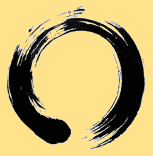

Excerpt: © Copyright, Julian Gresser, Piloting Through Chaos—The Explorer's Mind (Bridge 21 Press March 2013) All rights reserved.
The ancient Greek poet, Agathon (~ 441-401 B.C.), observed, "Even God cannot change the Past." Agathon's statement implies that the Past is a distinct, inflexible, linear, dead "thing," separate from the living Present. Is he correct?
The Voice of the Past—Please listen to the living voice of William Butler Yeats, one of the great poets of the 20th century.
Might it be possible that what we perceive as the "dead" past can actu¬ally come "alive," while a large part of our daily lives may actually be already "dead?" Can we choose when we are alive or dead? Is it possible to live simultaneously and creatively in Past, Present, and Future? Here is a curious story which may provide some insight. It is a classical tale from ancient China but its deep question is about what is real, and what isn't, and is as fresh as it was over fifteen hundred years ago.
Daowu and Jianyuan went to a house to offer condolences. Jianyuan struck the coffin with his hand and asked, "Alive or dead?"
Daowu said, "I'm not saying alive, I'm not saying dead."
"Why not," Jianyuan asked.
"I'm not saying, I'm not saying," Daowu maintained.
On the way home Jianyuan became belligerent,
"Say something immediately, Teacher, or it will be the worse for you."
Daowu said, "Hit me if you like, but I'm not saying." Jianyuan hit him.
After Daowu passed on, Jianyuan went to Shishuang and told him the story.
Shishuang said, "I'm not saying alive, I'm not saying dead." Jianyuan said, "Why not?"
Shishuang said, "I'm not saying, I'm not saying!"
At this point Jianyuan awakened.
Is there something about saying, naming, or defining that takes life out of this moment? Something about "not-knowing" that holds its mystery? If uncertainty is a form of not-knowing and not-knowing is the birthplace of all that is possible and creative, why then need we fear it?